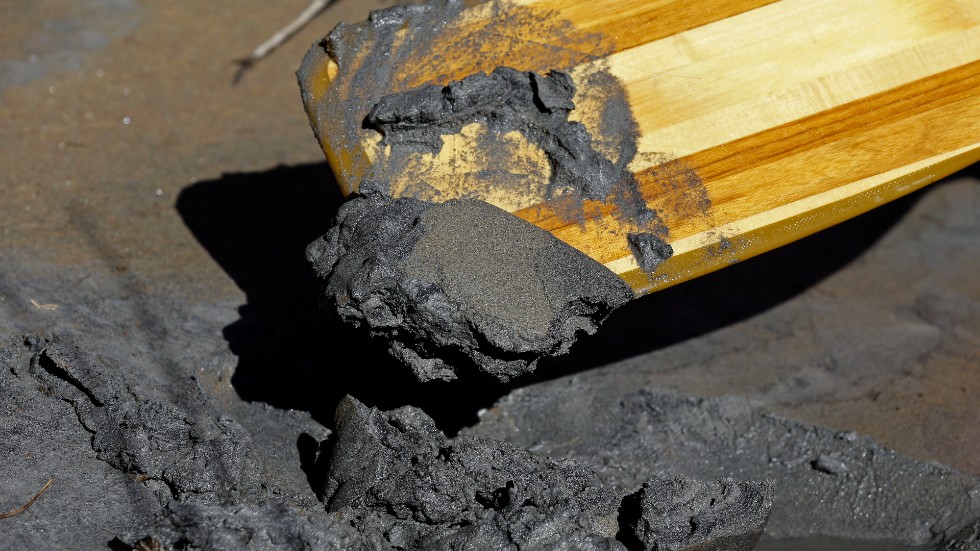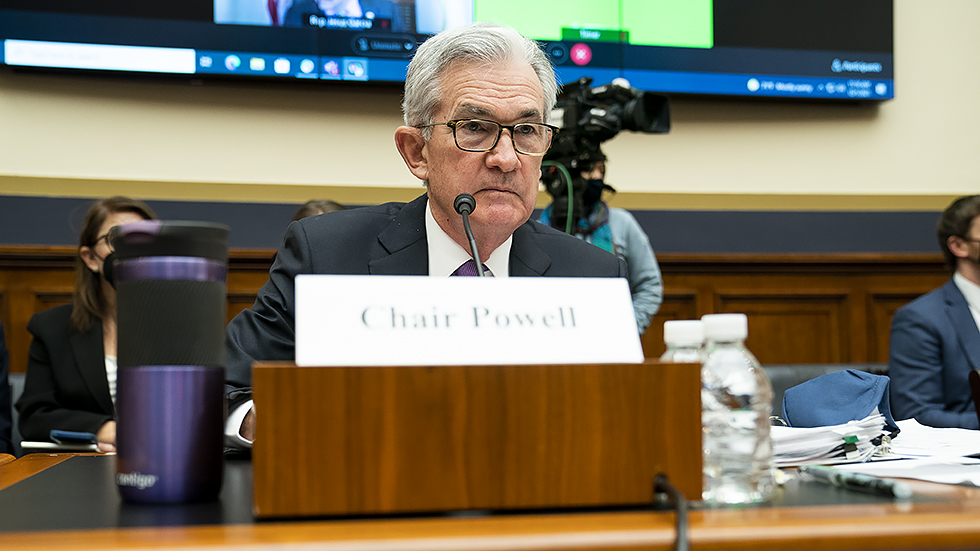Overnight Energy & Environment — EPA takes steps to address toxic coal residue
Welcome to Tuesday’s Overnight Energy & Environment, your source for the latest news focused on energy, the environment and beyond. Subscribe here: digital-staging.thehill.com/newsletter-signup.
Today we’re looking at EPA actions to take on toxic coal ash, the Fed Chair’s comments about the future of climate “stress tests” and a new White House report on scientific integrity.
For The Hill, we’re Rachel Frazin and Zack Budryk. Write to us with tips: rfrazin@digital-staging.thehill.com and zbudryk@digital-staging.thehill.com. Follow us on Twitter: @RachelFrazin and @BudrykZack.
Let’s jump in.
Biden officials launch coal ash crackdown

The Environmental Protection Agency (EPA) is taking its first steps to limit toxic coal waste from seeping into groundwater.
The agency is proposing to deny requests from three facilities in Indiana, Ohio and Iowa to extend an April 2021 deadline to start closing their ponds containing the waste, known as coal ash.
The EPA has also proposed to allow one facility in Kentucky to extend its closure deadline until Nov. 30 if it fixes groundwater monitoring issues.
Ok, but what’s coal ash? Coal ash is the residue created when power plants burn coal. It contains toxic materials like mercury, cadmium and arsenic and can pollute waterways if not properly dealt with. The residue is often stored in ponds.
According to the EPA, there are about 500 coal ash ponds in the country that are unlined — meaning they lack a certain protection to prevent leakage. The Obama administration previously put forward the country’s first regulations for coal ash disposal in 2015.
What else did the EPA do? In addition to the proposed decisions, the EPA said Tuesday that it will send letters to coal ash facilities that it says have issues including poor monitoring and insufficient cleanup information.
The agency said in a statement that it would put these companies “on notice” and investigate compliance concerns at facilities that store coal ash across the country.
The agency sent four such letters, including one that detailed “potential violations” that will likely require the agency to levy a penalty.
So what? Lisa Evans, senior counsel at environmental group Earthjustice, said the EPA’s latest move demonstrates it is taking action to make utilities comply with regulations for the substance.
“It’s really an action that’s much bigger than the individual decisions,” she said. “EPA, has not, to date, since the rule was promulgated in 2015 … enforced the rule. It’s stunning that there have been no enforcement actions when in fact there is widespread, substantial noncompliance.”
Read more about the EPA’s coal ash moves here.
Powell: Climate stress tests likely will be ‘key tool’

Federal Reserve Chair Jerome Powell on Tuesday said climate stress tests will “very likely” be a “key tool going forward,” a comment that may assuage some progressive concerns regarding his renomination to chief of the central bank.
“We are looking at climate stress tests. I think it’s very likely that climate stress scenarios, as we like to call them, will be a key tool going forward,” Powell said during his confirmation hearing before the Senate Banking Committee.
Asked by Senate Banking Chairman Sherrod Brown (D-Ohio) if he will make climate stress tests a top priority if he is confirmed to another term as Fed chair, Powell said yes.
“Within supervision, as I mentioned … that is likely to be a very important priority over the coming years,” he added.
Powell in July said the central bank was “in the process of” looking at climate stress scenarios, but emphasized “we haven’t decided to do that yet.” He predicted, however, that the Fed would go in that direction.
The background: Climate stress tests are a key concern among progressives and climate activists, many of whom had objected to Powell’s renomination. The scenarios are used to discern the resilience of financial institutions when it comes to risks involving the climate.
Some on the left had encouraged President Biden to replace Powell with an individual who would lead banks to fight against climate change, such as Fed Governor Lael Brainard, a supporter of stress tests. Biden, however, ultimately nominated her to serve as vice chair of the central bank.
Climate activists are now urging Biden to nominate a Fed vice chair of supervision who will address the risk to the financial sector that a changing climate presents, and encourage banks not to finance projects that could worsen existing problems.
Read more about Powell’s comments here.
Task force seeks to curb politics in science

A White House task force on Tuesday called on federal agencies to increase safeguards against political influence in scientific research, citing what it said was the Trump administration’s history of such influence.
In the report, the White House’s Scientific Integrity Task Force said scientific integrity violations are “small in number compared to the magnitude of the federal government’s scientific enterprise,” but that they can do disproportionate harm to public trust in government research and science in general.
“Protecting scientific integrity is essential to the progress of science and its application to a broad set of economic and societal objectives supported by Federal Government action (e.g., advancing public health, addressing climate change, ensuring food production, and protecting national and energy security),” the report states. “The scientific and technical information that is used in Federal decision-making around these and other issues must reflect rigorous and independent research that is free from suppression, manipulation, and other interference.”
The Biden administration identified the removal of political influence from scientific research as an early priority, with the president creating the task force within 10 days of his inauguration.
The report comes after high profile Trump administration scandals, like the White House pushing for a “correction” to a National Weather Service tweet contradicting the then-president on Hurricane Dorian.
But, recently, complaints have been lodged over chemicals integrity at EPA that advocates say span several administrations.
Read more about the White House announcement here.
PESTICIDES TO GET ENDANGERED SPECIES REVIEW
The Environmental Protection Agency (EPA) will evaluate the potential impact of new pesticide active ingredients on endangered species before registering them, reversing a decades-long policy.
It was the agency’s practice not to assess such potential impacts before registering new active ingredients in most cases. During that period, the EPA “has refused to do this, and… then they keep losing in court,” said Lori Ann Burd, a senior attorney and environmental health program director at the Center for Biological Diversity.
The new policy means that if an EPA analysis determines a new pesticide active ingredient will likely have a negative impact on endangered species or their habitats, the agency will formally consult with the U.S. Fish and Wildlife and the National Marine Fisheries Services before making the registration official.
Read more about the agency’s announcement here.
ON TAP TOMORROW
- The Senate Environment and Public Works (EPW) Committee will hold an oversight hearing on the U.S. Army Corps of Engineers
- The EPW committee will also vote on whether to advance President Biden’s picks to lead the Fish and Wildlife Service and the EPA’s Offices of Enforcement and Compliance Assurance and Research and Development
- Army Corps of Engineers officials will testify before the Transportation and Infrastructure Committee about what they’d like to see in an updated version of the Water Resources Development Act, which the committee hopes to advance this year
- The House Agriculture Committee will hold a hearing on the implications of electric vehicle investments for agriculture and rural communities
WHAT WE’RE READING
- Tarnished Gold: Aircraft, fuel key to illegal Amazon mining, The Associated Press reports
- Meet the EPA staffers key to Biden’s goals, E&E News reports
- Climate-fueled permafrost thaw threatens up to half of Arctic infrastructure, Reuters reports
- Gas Storage Areas Oversight Divides Environment, Energy Agencies, Bloomberg Law reports
ICYMI
- NASA welcomes chief scientist, senior climate adviser in new dual role
- Newsom allocates $22.5 billion to climate crisis in California budget proposal
And finally, something offbeat and off-beat: Have you seen this bird?
That’s it for today, thanks for reading. Check out The Hill’s energy & environment page for the latest news and coverage. We’ll see you on Wednesday.
Copyright 2024 Nexstar Media Inc. All rights reserved. This material may not be published, broadcast, rewritten, or redistributed..







